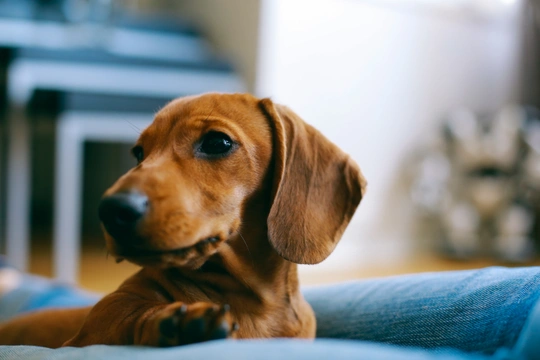
Should I stay home with my dog on bonfire night?
Dogs and bonfire night or any other evening that involves fireworks don’t really mix, and many dogs find the whole event very stressful. How badly your dog reacts to fireworks can vary, and can change from year to year too.
Most dogs owners would automatically plan to ensure they’re home on the night itself (or make arrangements for someone else to stay with their dog if this isn’t possible) to help their dogs to cope, but if you feel there’s little you can do, is this actually any help? For instance, if your dog tends to hide when fireworks begins and doesn’t come out until they’re finished, is your presence actually even noticed, much less helpful?
This is something many dog owners wonder, and that can cross your mind if you’d be quite keen to go to a display yourself but the dog is stopping play.
So, should you stay home with your dog on bonfire night, even if the dog seems ambivalent? Yes. This article will tell you why. Read on to learn more.
You need to manage your dog’s environment
You need to prepare your home before fireworks start in order to reduce their impact on your dog, and to adapt things throughout the night as needed.
Why can’t you just set this up and go? For several reasons. Fireworks night home prep for dogs includes things like masking noise from outside; covering windows and putting the TV on reasonably loudly to help to mask the bangs and flashes.
It would not be entirely unexpected if, on bonfire night, fireworks were shown on the TV too, however, requiring you to change the channel, which you can’t do if you’re not there.
Also, your dog might hide out and be unwilling to come out to drink water, so you might need to find them and offer them replenishment regularly.
You need to monitor their reactions
You need to keep an eye on how your dog is coping with things, and how stressed out they are getting. As fireworks often go on for quite a long period of time, some dogs will get progressively more stressed and upset and need direct intervention to calm them down, to prevent them running around in a full-scale panic, or risking endangering their health.
You need to ensure they don’t hurt themselves
A dog that is frightened of fireworks might go into fight or flight mode, and both of these can be dangerous for different reasons. A dog in fight mode might see the presence of another dog or pet as a threat and become aggressive towards them. A dog in flight mode will pay no mind to their own safety, and might actually hurt themselves trying to flee from the threat stimulus, which of course they cannot escape from.
For some breeds, stress alone can be dangerous
Stress and anxiety in dogs causes them to pant, which is fine and normal. But in flat-faced dog breeds with exaggerated features like many English bulldogs and French bulldogs, their flat faces and narrow nostrils can make it impossible for them to get enough oxygen if their breathing is very laboured, and this is understandably acutely dangerous.
Breeds like these need to be supervised and monitored even more carefully than other dogs during fireworks, to prevent dangerous shortness of breath from occurring, and so that you can take steps to calm them down and if needed, contact your vet.
Dogs that are at high risk of breathing difficulties at times of stress may require medications to either calm them down or help them to breathe, and if you’re not home with your dog, you can’t tell that they need them or be there to give them.
Your presence provides reassurance
However acutely bothered by fireworks your dog is, your presence helps to reassure them, and their responses would undoubtedly be worse if you were not there with them. It is important to reassure your dog without worsening or reinforcing their fears, but your dog really needs you by their side on bonfire night and this is the most important night of the year to make sure you’re present to support them.
Leaving your dog alone on bonfire night can reinforce their fears in the future
If your dog has to face their bonfire night fears alone, they will be more acute, and this in turn becomes self-perpetuating and means that they will be even more afraid of fireworks in the future.
You can take proactive steps to keep your dog calm
There are lots of ways in which you can proactively work to keep your dog calm or reduce their fireworks anxiety if you are there with them. As mentioned, your presence alone helps, but engaging with your dog and diverting their attention goes even further.
You might want to groom them, play with them, give them a massage, or even try and teach them some tricks; diverting their attention from the stimulus outside will help to keep them calm, as will simply having your full attention.
A scared dog left alone can be very destructive
Finally, a dog that is scared and left alone to handle this on their own might become very destructive. If you’re there with them, this is less likely to happen and you can often stop it if it does.
Some dogs will rip up carpets or scratch furniture, or toilet in the house just for starters. Being alert to problems – which you can only do if you are there – can help to prevent them.



